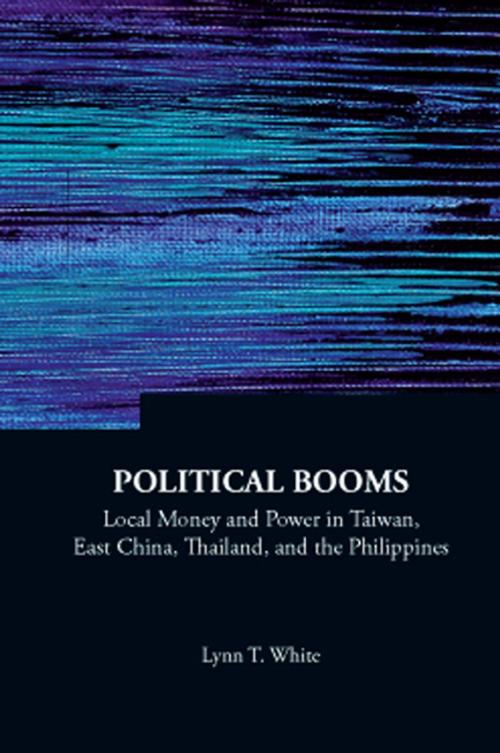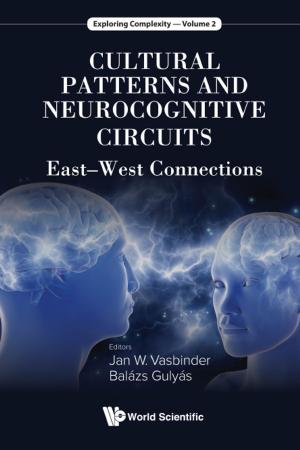Political Booms
Local Money and Power in Taiwan, East China, Thailand, and the Philippines
Nonfiction, Social & Cultural Studies, Political Science, International, Foreign Legal Systems, Politics, Economic Conditions, Business & Finance| Author: | Lynn T White | ISBN: | 9789814469319 |
| Publisher: | World Scientific Publishing Company | Publication: | June 10, 2009 |
| Imprint: | WSPC | Language: | English |
| Author: | Lynn T White |
| ISBN: | 9789814469319 |
| Publisher: | World Scientific Publishing Company |
| Publication: | June 10, 2009 |
| Imprint: | WSPC |
| Language: | English |
Why have Taiwan, rich parts of China, and Thailand boomed famously, while the Philippines has long remained stagnant both economically and politically? Do booms abet democracy? Does the rise of middle “classes” promise future liberalization? Why has Philippine democracy brought no boom and barely served the Filipino people?
This book, unlike most previous studies, shows that both the roots and results of growth are largely political rather than economic. Specifically, it pays attention to local, not just national, power networks that caused or prevented growth in the four places under consideration. Violence has been common in these polities, along with money. Elections have contributed to socio-political problems that are also obvious in Leninist or junta regimes, because elections are surprisingly easy to buy with corrupt money from government contracts. Liberals should pay more serious theoretical attention to the effects of money on justice, and Western political science should focus more clearly on the ways non-state local power affects elections. By considering the effects on fair justice of local money and power (largely from small- and medium-sized firms that emerge after agrarian reforms), this book asks democrats to face squarely the extent to which electoral procedures fail to help ordinary citizens. Students and scholars of Asia will all need this book — as will students of the West whose methods have become parochial.
Contents:
- Introduction: What Politics Aids Booms?
- Political Roots of Taiwan's Boom
- Political Roots of East China's Boom
- Political Roots of Thailand's Boom
- Political Roots of Philippine Stasis
- Political Results of Taiwan's Boom
- Political Results of East China's Boom
- Political Results of Thailand's Boom
- Political Results of Philippine Stasis
- Conclusion: Do Booms Aid Democracy?
Readership: Academics, researchers and graduate and advanced undergraduate students in Asian politics, sociology and political economy; informed readers interested in the causes of growth or stagnancy in Asian political economies.
Key Features:
- Suggests new general perspectives on the need for political economy to take more account of geography, history, culture and power in local networks, not just in states
- Adds crucial new information about the processes of politics in Asian political economies, involving concrete situations (e.g. economic booms), not just norms
- Includes detailed maps of the countries profiled — i.e. Taiwan, China, Thailand, and the Philippines — covering all the sizeable places mentioned in the text of the book
Why have Taiwan, rich parts of China, and Thailand boomed famously, while the Philippines has long remained stagnant both economically and politically? Do booms abet democracy? Does the rise of middle “classes” promise future liberalization? Why has Philippine democracy brought no boom and barely served the Filipino people?
This book, unlike most previous studies, shows that both the roots and results of growth are largely political rather than economic. Specifically, it pays attention to local, not just national, power networks that caused or prevented growth in the four places under consideration. Violence has been common in these polities, along with money. Elections have contributed to socio-political problems that are also obvious in Leninist or junta regimes, because elections are surprisingly easy to buy with corrupt money from government contracts. Liberals should pay more serious theoretical attention to the effects of money on justice, and Western political science should focus more clearly on the ways non-state local power affects elections. By considering the effects on fair justice of local money and power (largely from small- and medium-sized firms that emerge after agrarian reforms), this book asks democrats to face squarely the extent to which electoral procedures fail to help ordinary citizens. Students and scholars of Asia will all need this book — as will students of the West whose methods have become parochial.
Contents:
- Introduction: What Politics Aids Booms?
- Political Roots of Taiwan's Boom
- Political Roots of East China's Boom
- Political Roots of Thailand's Boom
- Political Roots of Philippine Stasis
- Political Results of Taiwan's Boom
- Political Results of East China's Boom
- Political Results of Thailand's Boom
- Political Results of Philippine Stasis
- Conclusion: Do Booms Aid Democracy?
Readership: Academics, researchers and graduate and advanced undergraduate students in Asian politics, sociology and political economy; informed readers interested in the causes of growth or stagnancy in Asian political economies.
Key Features:
- Suggests new general perspectives on the need for political economy to take more account of geography, history, culture and power in local networks, not just in states
- Adds crucial new information about the processes of politics in Asian political economies, involving concrete situations (e.g. economic booms), not just norms
- Includes detailed maps of the countries profiled — i.e. Taiwan, China, Thailand, and the Philippines — covering all the sizeable places mentioned in the text of the book















